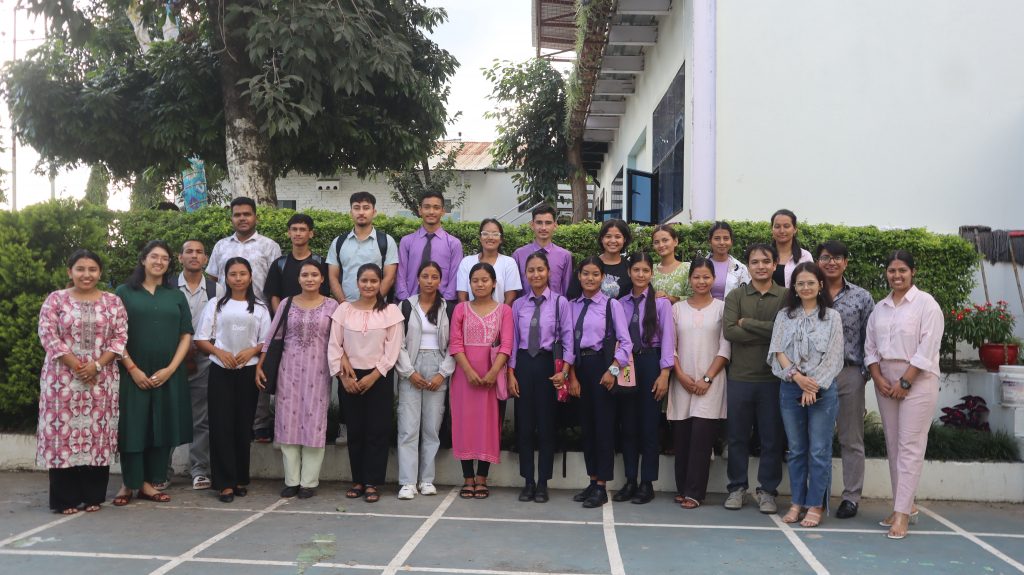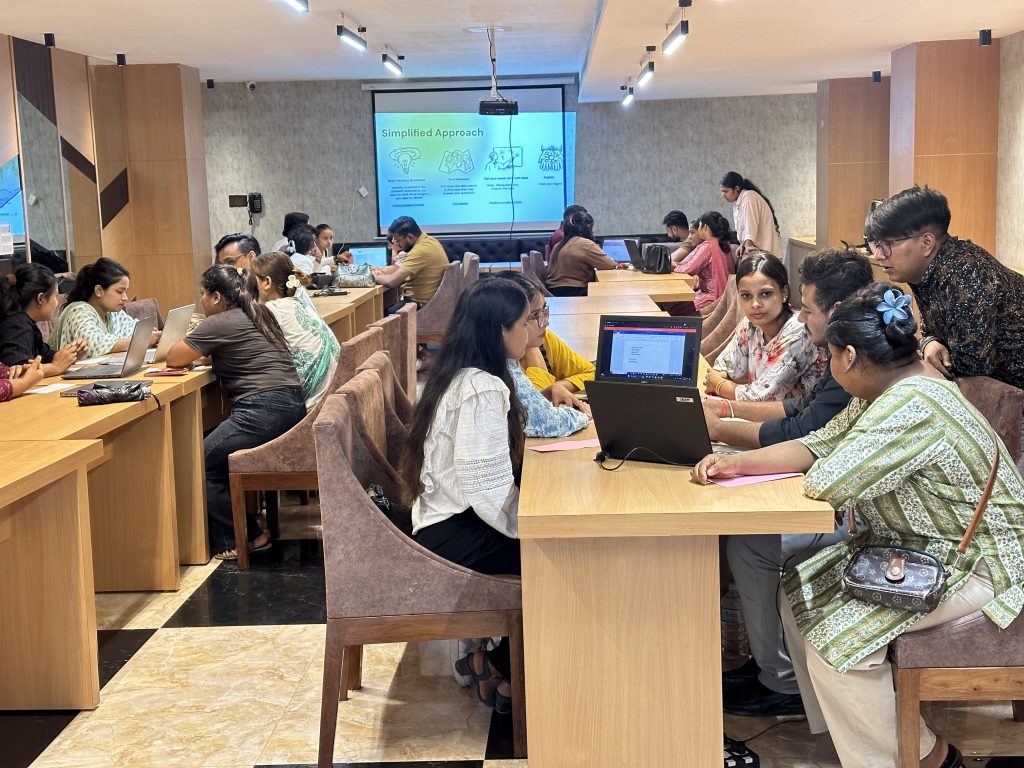Blog
Empowering Communities Through Data: Highlights from the Data Hackdays 2024
Open Knowledge Nepal
|Fri Sep 13 2024
In a world where data is becoming the backbone of decision-making, empowering communities to utilize it effectively is crucial for development. The Women in Data Conference took a significant stride towards fostering data-driven innovation and inclusivity in Nepal. As part of the post-conference activities, Open Knowledge Nepal (OKN) and The Algorithm organized Data Hackdays 2024 in two vibrant municipalities: Tulsipur Sub-Metropolitan City on August 25 and Birgunj Metropolitan City on September 1. The events were designed to bridge the gap between local governments and the community, leveraging data from the Integrated Data Management System (IDMS) to address pressing local issues.
Bringing Data to Life
The Data Hackdays aimed to bridge the gap between available data and its practical application in addressing local issues. Participants were divided into teams, each focusing on distinct themes such as Women’s Statistics, Environment & Agriculture, Health, Education, Disaster Management, Industry & Business, Sanitation, and Cooperatives. Utilizing data from the Integrated Data Management System (IDMS), these teams crafted compelling data stories that highlighted critical local challenges like women’s literacy rates, disaster occurrences, health metrics, and educational statistics.
Empowering Women in Data
A standout feature of the events was the high level of female participation, which underscores the growing involvement of women in the data field. In Tulsipur, 18 of the 30 participants were women, while Birgunj saw 19 out of 31 participants being women. This strong female presence highlighted how events like these can empower women by giving them the tools to engage with data and drive community-based solutions.
Showcasing Local Data Stories
The collaborative nature of the hackdays allowed participants to work in teams, each producing unique data stories based on their chosen themes.
Tulsipur Sub-Metropolitan City marked the debut of a new data story generation module. Four teams emerged with insightful projects:
- Team Didi-Bhai focused on Women Statistics, exploring aspects such as the population of women, literacy rates, and ward-wise distribution.
- Team We For Change delved into Environment & Agriculture and Health, highlighting women’s participation in community forestry, farmer counts, and vaccine worker distribution.
- Team CoCo concentrated on Cooperatives, analyzing the total number of cooperatives, their ward-wise distribution, and gender distribution in leadership roles.
- Team Liaka addressed Education and Disaster Management, examining disaster occurrences, relief distribution, and student dropout rates.

Birgunj Metropolitan City built on these foundations, producing even more impactful data stories through four dynamic teams:
- Team Young Leaders tackled Health and Disaster Management, presenting data on diarrhea incident rates, institutional pregnancy deliveries, neonatal death trends, and malaria cases.
- Team Data Decoders focused on Vital Registration and Drinking Water, analyzing birth and death ratios, marriage and divorce patterns, and migration insights.
- Team Data for Change explored Education and Sanitation, detailing the distribution of students in schools and waste management complaints.
- Team Youth Spirits addressed Industry & Business and Road & Transportation, examining male/female involvement in businesses, poverty distribution, and ethnic group distributions.

Impact and Outcomes
The hackdays had a profound impact on both municipalities. They not only demonstrated the potential of data in enhancing local governance but also highlighted the necessity for evidence-based decision-making. Key outcomes included:
- Enhanced Collaboration: The events fostered a collaborative environment between local governments, women, youth, and civil society, paving the way for a more robust data ecosystem.
- Increased Data Accessibility: By engaging the demand side of data, participants were able to utilize the IDMS more effectively, making data more accessible to the public and encouraging citizen participation.
- Empowerment Through Data Literacy: The hackdays emphasized the importance of data literacy, equipping participants with the skills to analyze and visualize data, thus balancing the supply and demand sides of data utilization.
Recommendations for Future Initiatives
Looking ahead, it’s clear that organizing more data hackdays can further stimulate community engagement and data literacy. There is also a need to enhance collaboration between municipalities and civil society, foster evidence-based policymaking, and improve data literacy to ensure participants are better equipped to work with complex datasets.
Municipalities can create more inclusive and responsive policies by integrating more voices – especially from youth and women – into the evolving data ecosystem. The journey has only begun, and with the right support and continued efforts, the role of data in local governance can only grow stronger.
List of produced Data Stories
Tulsipur Sub-Metropolitan City
- Team Didi-Bhai: Data Stories Link
- Team We For Change: Data Stories Link
- Team CoCo: Data Stories Link
- Team Liaka: Data Stories Link
Birgunj Metropolitan City
- Team Young Leaders: Data Stories Link
- Team Data Decoders: Data Stories Link
- Team Data for Change: Data Stories Link
- Team Youth Spirits: Data Stories Link
The Data Hackdays 2024 has been made possible through the financial support of the D4D Programme Phase II, implemented by The Asia Foundation with funding from UK Aid.